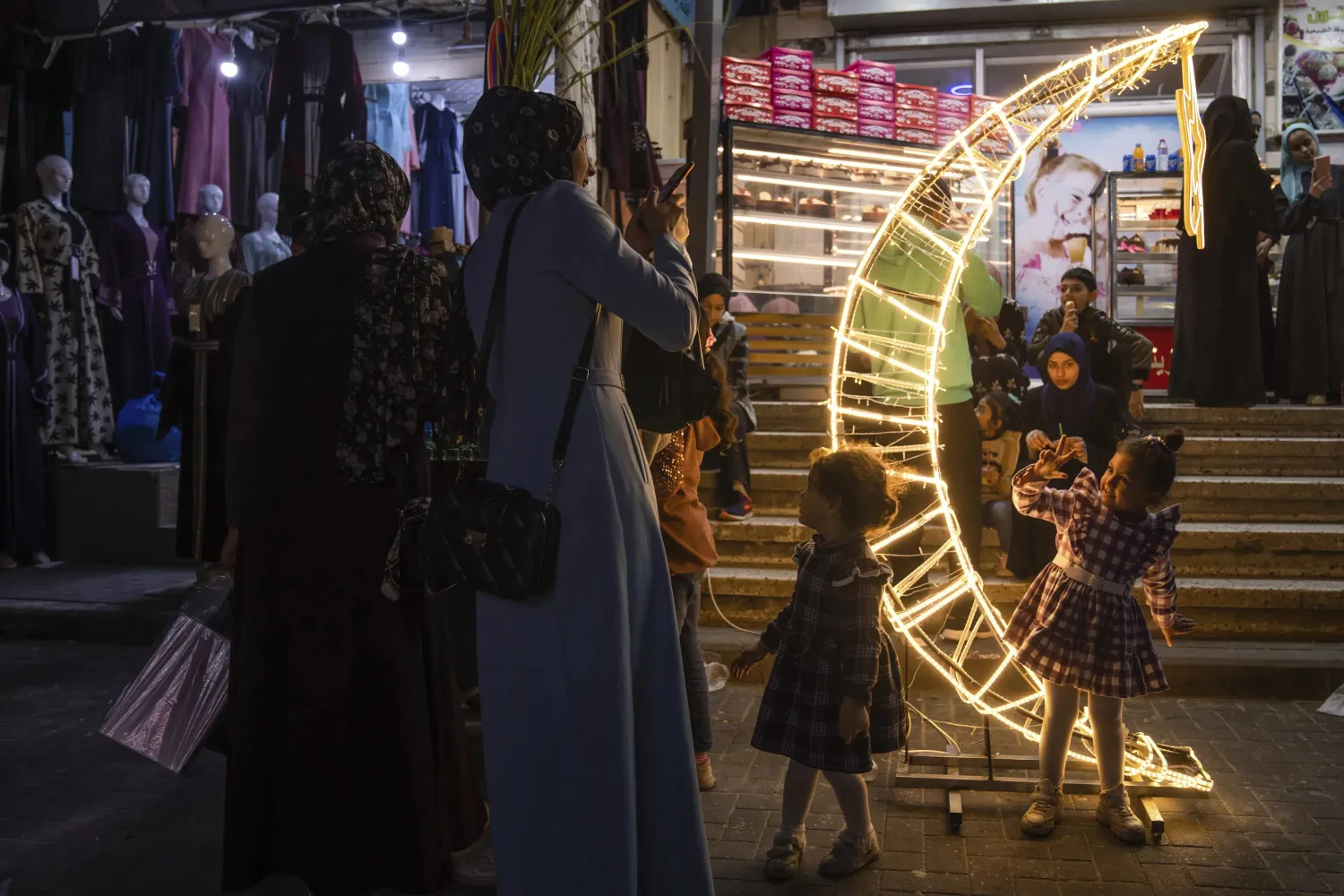The first daily fast of the Islamic holy month of Ramadan began Thursday, as hundreds of millions of Muslims worldwide enter a four-week period of worship.
The observance comes at a time when numerous countries and governments across the Middle East are taking tentative steps towards calming enduring conflicts and crises made more acute by the costly war in Ukraine and a devastating earthquake in Türkiye and Syria that killed over 52,000 people, The Associated Press said.
During the coming four weeks, hundreds of millions of Muslims will abstain from food and water from dawn to dusk, before gathering with family and friends for indulgent nighttime meals.
According to Islam, fasting draws the faithful closer to God and reminds them of the suffering of the poor.
In Sudan’s capital, families prepare and sell culinary delights weeks in advance to mark the break of the fast each evening, a meal known as Iftar.
The food and drink of choice for nighttime feasts across households in the Islamic African nation include assida, a semolina-based flour dish, and a sugary fermented drink called, “sweet bitter.” Both are recipes that date back generations.
“Those who can’t afford don’t have to pay,” said Fatima Mohammed Hamid, who sells the food items from her small home on Tuti island, just north of the Sudanese capital of Khartoum.
In addition to fasting, charity giving is another of Islam’s five pillars. During Ramadan, mosques and charities regularly provide meals for the poor at long tables that sprawl out onto the street.
For Sudan, the holy season comes as the promise of a new political era approaches. The country has been steeped in political chaos since a coup ousted a western powersharing government in October 2021.
A new transitional government could be formed before the holy month draws to a close, as promised by the country’s ruling military and other political forces earlier this week. However, many prominent Sudanese factions reject the move. Amid the uncertainty, most find common ground in complaining about the rising cost of living.
“Everything (the ingredients) costs double what it did last year,” said Hamid.
Israeli and Palestinian leaders pledged this week to lower tensions as Ramadan begins, following months of deadly violence in the West Bank and east Jerusalem. This year, the fasting period coincides with the Jewish festival of Passover, spurring concern about fresh flare-ups with large numbers of Jewish and Muslim faithful expected to pour into Jerusalem’s Old City.
From Gaza to Khartoum and Tunis to Sanaa, soaring prices are proving a further concern for those set to celebrate the occasion. Arab countries are continuing to suffer from the economic fallout of the war in Ukraine, with many reliant on grain imports from eastern Europe.
In Tunis’ once-bustling Bab al-Fellah market, rising costs have left shoppers unable to splurge on Ramadan food shopping as they might have in past years.
“I have almost used up the 40 dinars (roughly $13) that my husband gave me and I bought only vegetables, a chicken and some spices,’’ said a woman who identified herself only as Fatima B.
In war-torn Sanaa, the picture is bleaker still, with residents struggling to purchase even basic supplies. The country’s ruinous civil war, now entering its ninth year, has killed more than 150,000 people and pushed millions of Yemenis to the brink of famine.
“I am not able to provide daily sustenance for the children,” said Saleh al-Omrani, an unemployed resident from Sanaa. “We had Ramadan in the good old days, but today there is no longer Ramadan.”
In southern Türkiye and northwestern Syria, the destruction caused by last month’s earthquake poses perhaps the steepest challenge of all.
The quake destroyed or damaged hundreds of mosques, Turkish authorities say, leaving tens of thousands to pray in makeshift tents.
In northwestern Idlib province — Syria’s last rebel enclave -- very few families still have the energy or resources to make the necessary preparations for Ramadan this year.
Abdul Qahar Zakou, a cafe owner from the province, said he will decorate his cafe despite the prevailing misery and do his best to create a festive atmosphere.
“Despite all the odds, Ramadan will always have its own atmosphere, with a symbolism and spirituality that makes life easier,” said Zakou.
Fasting is required for all healthy Muslims, with exemptions for those who are sick and for women who are pregnant or breastfeeding. Small children are not expected to fast.
Eating or drinking in public during the day is generally frowned upon in Muslim countries.
Islam follows a lunar calendar, so Ramadan begins around a week and a half earlier each year.
At the end of Ramadan, Muslims celebrate the joyous Eid al-Fitr holiday, when children often receive new clothes and gifts.









